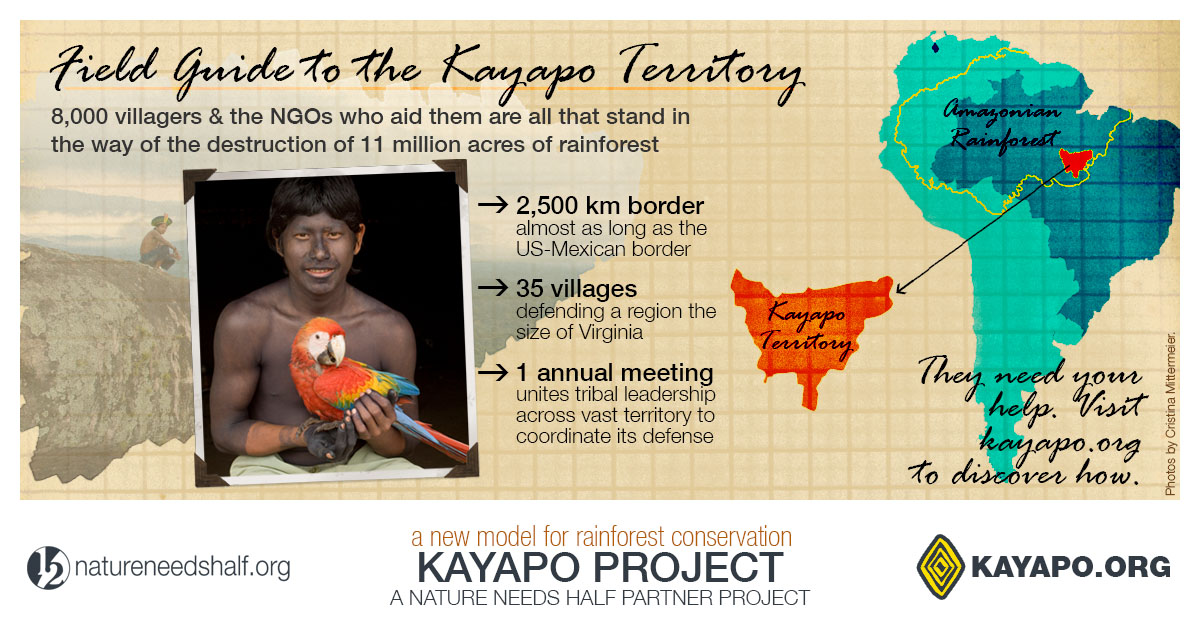Lacking technological advantages, but rich in courage and conviction, these people confront an enemy assailing them across a vast 2,500 km frontier, a perimeter almost as long as the US-Mexican border. And their foes, illegal mining and logging operators, will stop at nothing to co-opt, coerce, and capture territory that will yield short-term profit at the expense of local culture and planetary health.
These are just some of the very real dangers the Kayapo confront on a daily basis.
Their beleaguered lands and culture remain intact only because of the friendship laid down between Raoni and the Villas-Bôas brothers, and the enduring outside support this friendship made possible.
Chief among the Kayapo’s allies is the Kayapo Project led by Dr. Barbara Zimmerman, a tireless force for Kayapo sovereignty and their traditional role as rainforest stewards. Without this project, it is unlikely that the Kayapo people would have organized in time to resist the criminal incursion of their lands.
Next week we will reveal how Kayapo leaders aided by the Kayapo Project leverage the traditional skills and knowledge of their culture to defend their home and protect the Amazonian rainforests. Please check back then.

Comments are closed